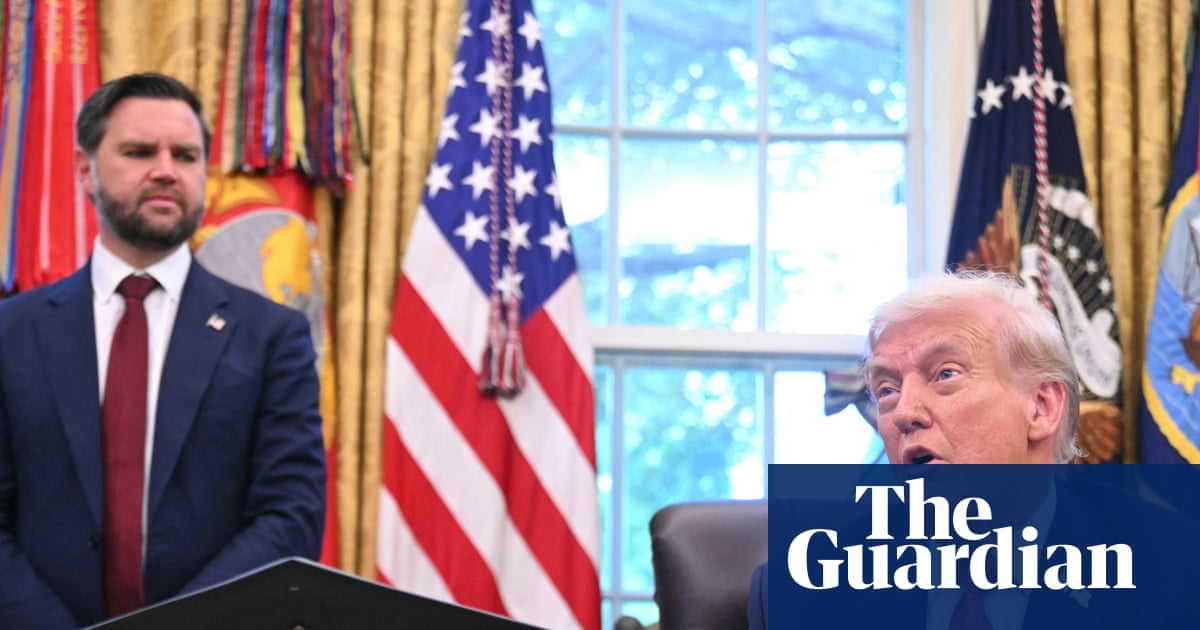WASHINGTON — Vice President JD Vance indicated in an interview on NBC News’ “Meet the Press” on Sunday that President Donald Trump was not opposed to invoking the Insurrection Act.
Asked by moderator Kristen Welker whether the White House was seriously considering invoking the 1807 statute, Vance said, “The president is looking at all his options.”
“Right now he hasn’t felt he needed to,” he added.
The Insurrection Act would allow the president to deploy the U.S. military domestically for law enforcement purposes. The military is typically not allowed to be deployed on U.S. soil for domestic law enforcement purposes without congressional authorization.
NBC News previously reported that White House officials have had increasingly serious talks about whether Trump should invoke the Insurrection Act. If Trump were to invoke the law, it would be the first time since former President George H.W. Bush invoked the law during the 1992 Los Angeles riots.
Vance’s comments come as the White House has federalized National Guard troops in an attempt to deploy them in Oregon and Illinois, aiming to target Portland and Chicago. Both moves have been temporarily blocked in court. The White House’s push to deploy troops to Democratic-run cities has alarmed critics, who argue the move is an overreach and being done for political purposes.
Responding to the question about the Insurrection Act, Vance pointed to attacks on law enforcement officers who are enforcing immigration laws.
“The problem here is not the Insurrection Act or whether we actually invoke it or not. The problem is the fact that the entire media in this country, cheered on by a few far-left lunatics, have made it OK to tee off on American law enforcement,” Vance told Welker. “We cannot accept that in the United States of America.”
Crime has dropped in both Chicago and Portland, according to statistics from the Chicago Police Department and the city of Portland.
Pressed as to whether there was a “rebellion” in the cities to trigger the Insurrection Act, Vance accused the cities of not “keeping the statistics properly,” without offering proof.
“The president just wants people to be kept safe, and we’re exploring everything that we can do to make sure that the American people are safe in their own country,” Vance said.
On Saturday, a federal appeals court blocked the White House from deploying federalized National Guard troops in Illinois. The troops can remain federalized, the court said, but cannot be deployed. Ahead of the court’s ruling, National Guard troops had already begun arriving in the greater Chicago area.
The governments of Illinois and Chicago filed lawsuits after Trump announced the move, prompting a federal judge to temporarily block the administration from deploying National Guard troops there. The White House appealed the first judge’s ruling to 7th Circuit U.S. Court of Appeals, which ruled against the deployments.
Also this month, a federal judge in Oregon blocked the White House from sending National Guard troops from any state to Portland as the case continues through the courts. The 9th Circuit U.S. Court of Appeals is now considering the case.
The Trump administration initially tried to deploy Oregon National Guard troops in Portland, but when that move was blocked in court, the administration moved to deploy troops from California to Portland instead. A federal judge ruled that the White House could not send National Guard troops from any other state to Portland as well.
The appeals court panel indicated it may be open to reversing the lower court’s decision. It’s unclear when the court might ultimately rule. One judge on the panel said the court would try to rule as soon as possible.
Source link

